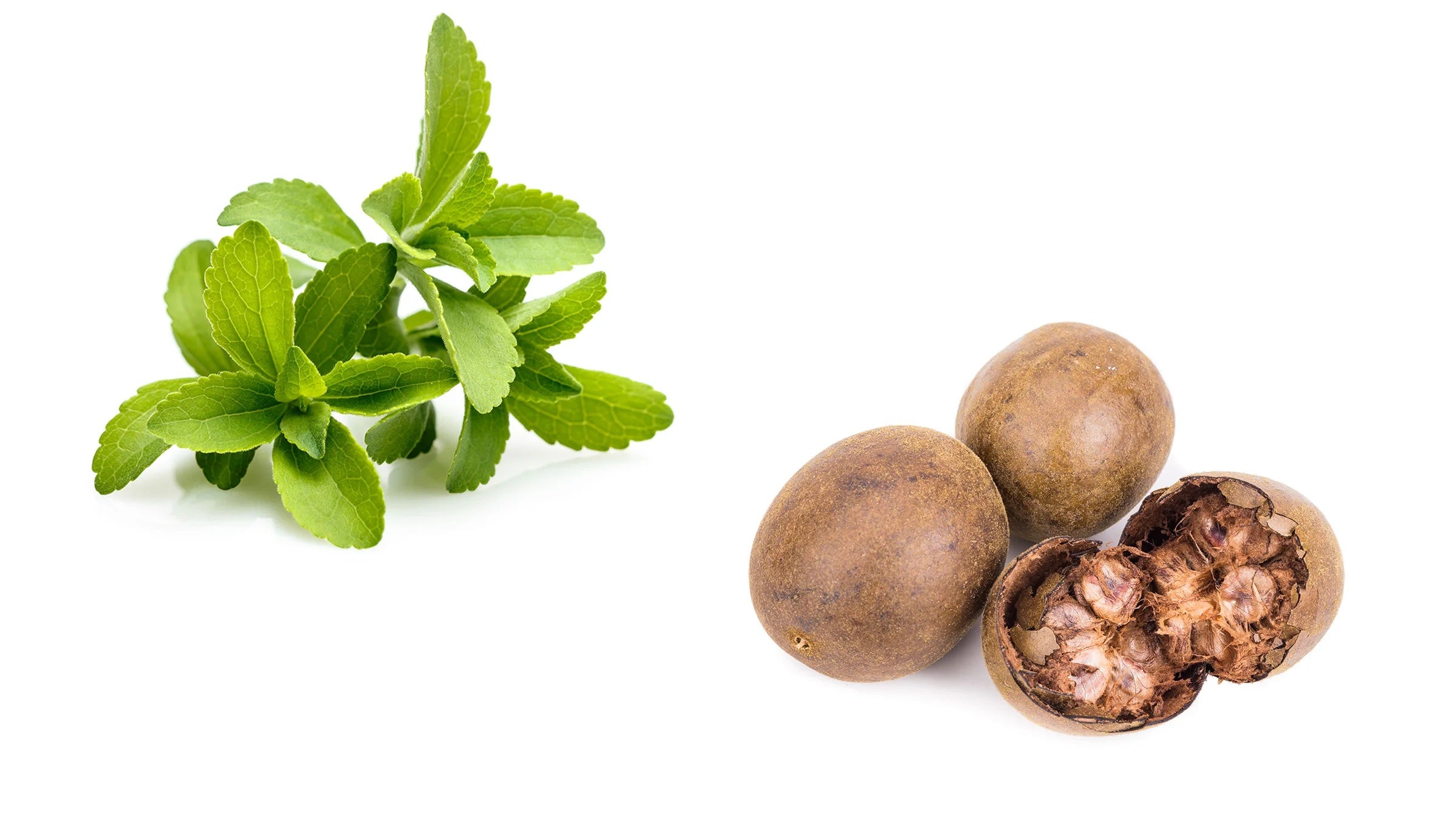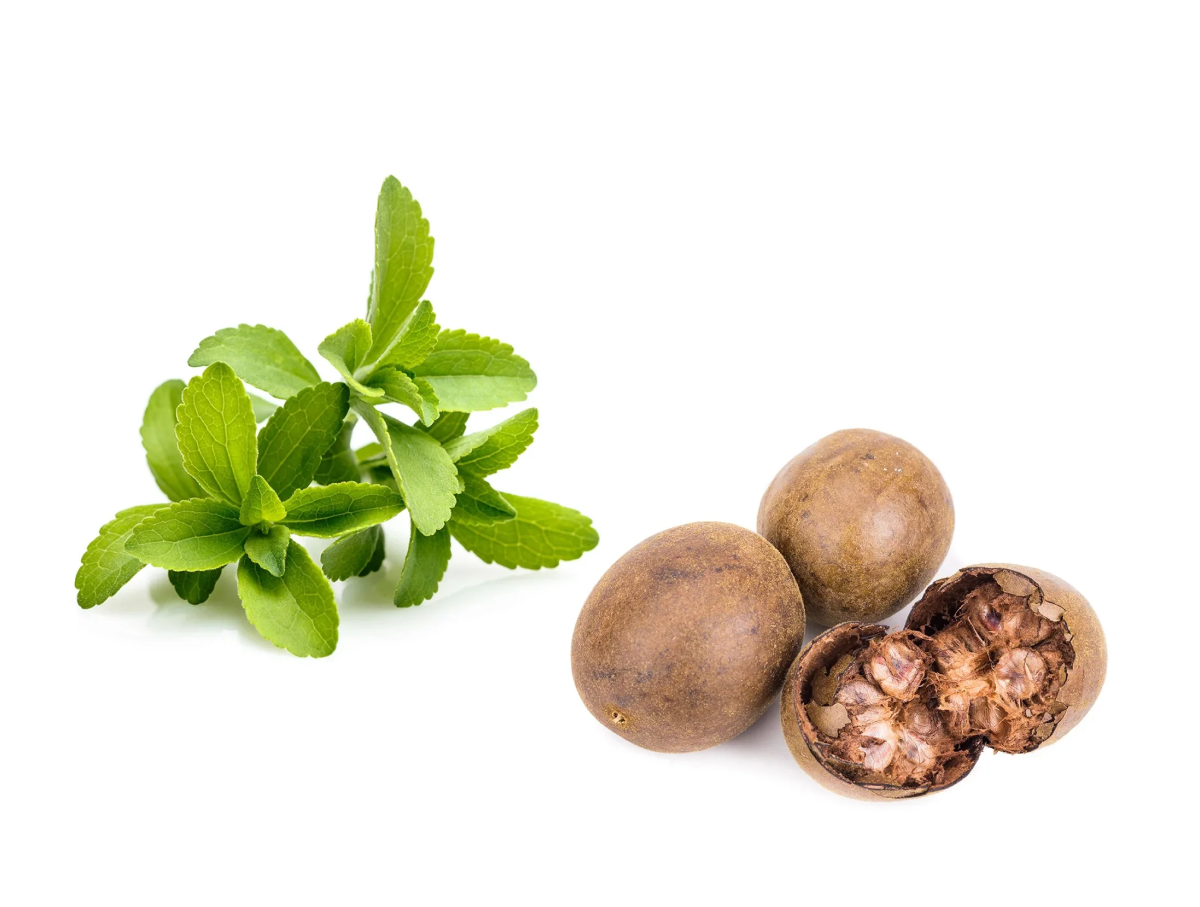

Naturally Sweetened
At instantVITA, we made the decision to formulate all of our products with Monk Fruit instead of Stevia!
Monk Fruit vs. Stevia
Origin and Processing:
Monk Fruit: Originating from the exotic Luo Han Guo fruit, it is crafted by extracting the fruit’s sweet components to form a concentrated liquid or powder
Stevia: Hails from the South American Stevia rebaudiana plant. It’s sweetness is extracted from the leaves and processed into powdered or liquid forms.
Glycemic Index and Blood Sugar Impact:
Monk Fruit: With a glycemic index of zero, Monk Fruit doesn’t raise blood sugar levels. Mogrosides, its natural compounds, provide sweetness without effecting insulin release. This makes it a top choice for blood sugar management, low-carb diets, and ketogenic eating.
Stevia: Like Monk Fruit, Stevia boasts a glycemic index of zero, ensuring stable blood sugar levels. However, some recent studies suggest that it may minimally affect insulin secretion in certain people, a factor of potential concern for those closely monitoring blood sugar.
Antioxidants
Monk Fruit contains natural antioxidants, particularly mogrosides, which possess anti-inflammatory properties. It has also been used in traditional Chinese medicine for supporting respiratory and digestive health. While still being calorie-free and a non-contributor to tooth decay, Stevia lacks the same antioxidant punch as Monk Fruit.
Aftertaste:
Monk Fruit sweetener boasts a delightful sweetness with no aftertaste, while Stevia can carry a bitter or metallic aftertaste for some and not the familiar, sugar-like experience.
